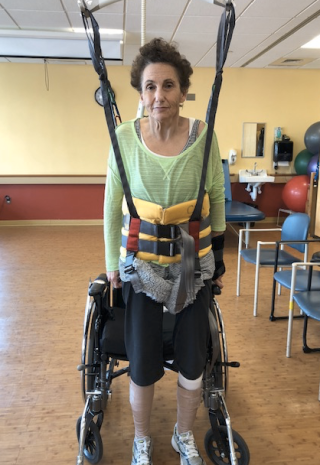Health
Why I Don’t Double-Lock My Door at Night
Personal Perspective: This weekend marks the fifth anniversary of my stroke.
Posted May 26, 2023 Reviewed by Gary Drevitch

This Memorial Day will be the fifth anniversary of my stroke. My doctors never found the reason I had the stroke and while I’ve come to accept this, I’m still fearful it could happen again. Which is why I don’t double-lock the door at night. Just in case I can’t make it to the door and the EMT’s have to force their way in, I want to make it as easy for them as I can.
What I’ve been telling myself all these years is that it was stress that caused the stroke as I was working a job that was heavy on looking at metrics produced by its workers each month, which was a great deal of pressure. I was not accustomed to having to meet productivity goals and I was struggling. Management seemed to care more about the numbers than about the clients who we social workers dealt with.
I knew from my time as a social worker that people with mental illness tend to die earlier than others. One study showed that seriously mentally ill (SMI) patients die about 10-20 years earlier than others.
I know I definitely met the criteria for seriously mentally ill. I recently had to send a copy of my psychiatric records to a publisher for whom I doing freelance work so they could verify what I’d written in my article — that I’d endured multiple psychiatric admissions. As I was scanning the records and perusing them, which I hadn’t done in a long time, one phrase kept catching my eye: “severe personality disorder.” I knew my BPD was severe, but it had been a long time since I had thought about how ill I was, and thinking about this made me sad but it also made me think about how fortunate I was to have had access to the treatment I did.
Regardless, I digress. I was talking about this being Memorial Day weekend and the fifth anniversary of my stroke, etiology unknown. I recently came across a study which stated that adults in their 20s or 30s living with a mental disorder have up to a three-time higher risk of suffering a heart attack or a stroke.
These were the findings of the study in terms of specific diagnoses: "excessive risks of incident MI (myocardial infarction) and IS (ischemic stroke) were observed in patients with mental disorders including depressive disorder, bipolar disorder, schizophrenia, insomnia, anxiety disorder, post-traumatic stress disorder, personality disorder, somatoform disorder, eating disorder, and substance use disorder.”
While I may not have been in the age demographics of this particular study, now I can start at least to question if my stroke was caused by my many years of severe anorexia, major depressive disorder, and borderline personality disorder.
Thanks for reading,
Andrea


